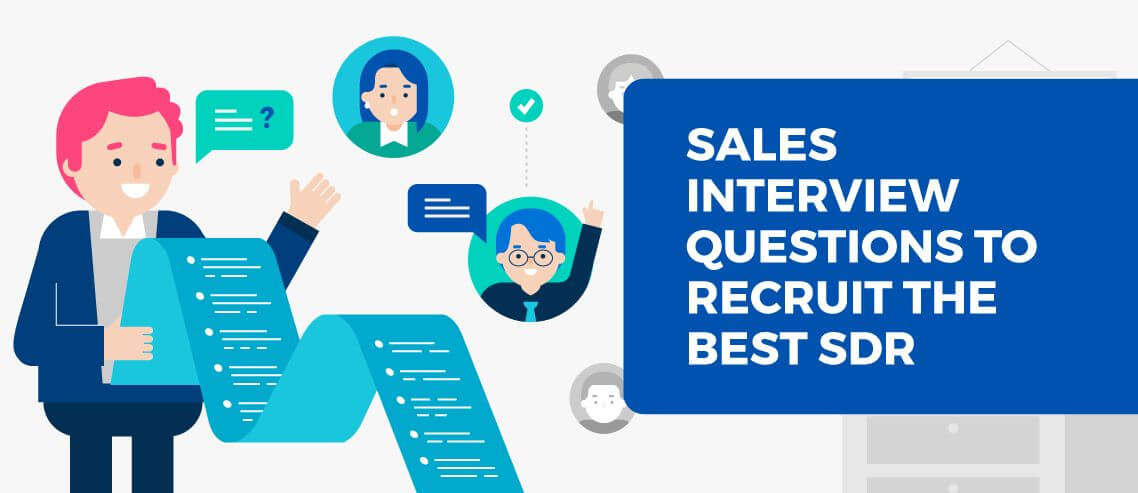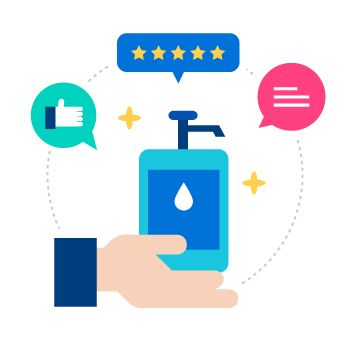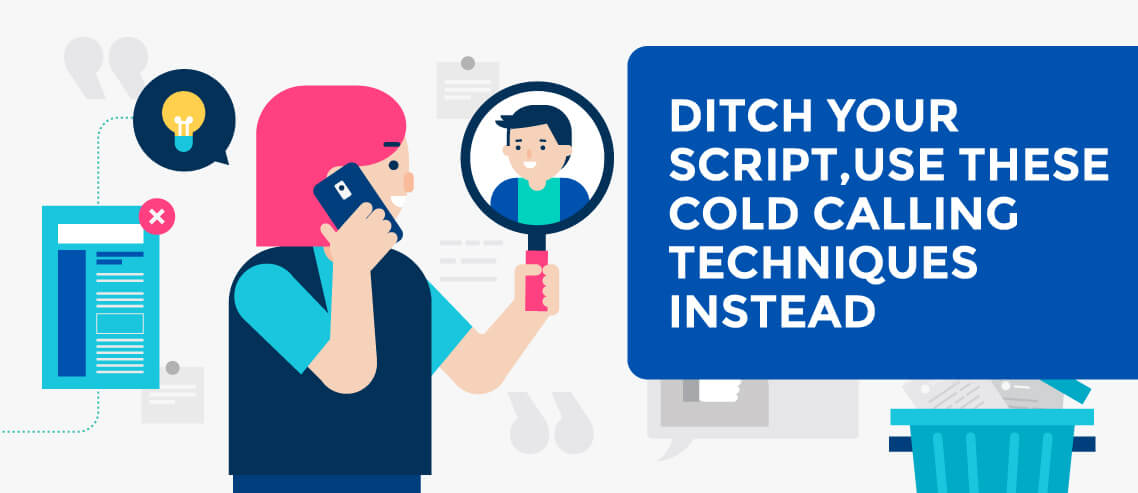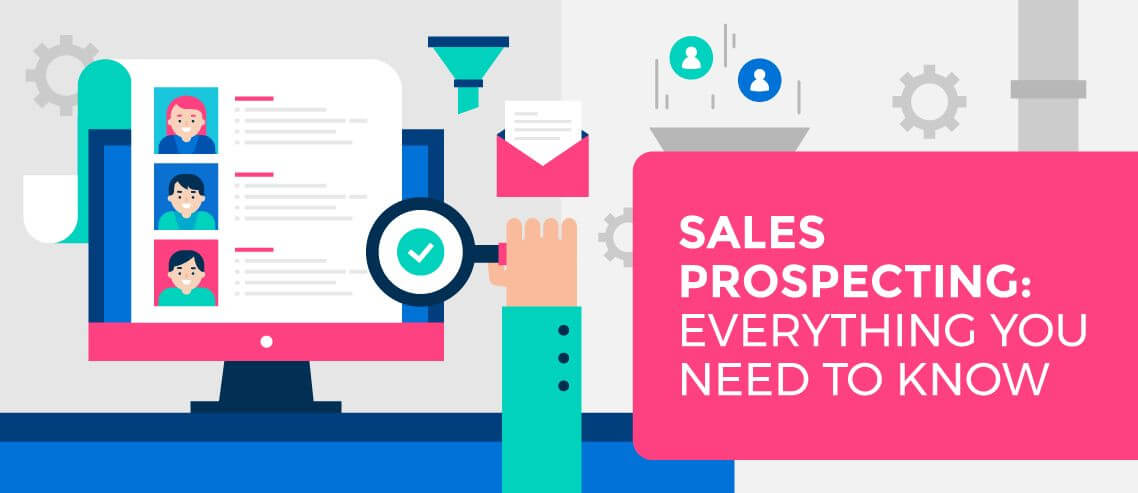20 Sales Interview Questions To Recruit the Best SDR

Contents
Selling has never been harder than it is right now.
Decision-making processes and the solutions we sell are becoming increasingly complex, which has in turn affected the length of the sales process – with 68% of B2B buyers saying their purchase cycle is longer than it was a year ago.
A longer sales cycle means more touch points and a lot more upfront planning, which can ultimately have a negative impact on your bottom line.
To deliver the necessary results to move your business forward, you need to hire the best sales development representatives (SDRs). Reps who can think fast, aren’t afraid to challenge the buyer, and are prepared to put in the work.
Use these interview questions and tips to give yourself the best chance of recruiting exceptional SDRs.
20 Best SDR Interview Questions You Need to Be Asking
1. Tell me about a time you were faced with a setback, a no, or a defeat. How did you handle it?
Unanswered emails; calls that end in the prospect hanging up; pitches that just didn’t hit the mark. Even the world’s best salespeople fail more than they succeed.
What’s important is the rep’s ability to bounce back from those failures.
Asking this question helps you assess the candidate’s ability to maintain a feeling of confidence and positivity, and a desire to keep doing the right things, even after they’ve heard nothing but “no” all day.
2. Why did you apply for this specific role?
Personalization plays a huge role in sales. 77% of B2B sales and marketing professionals believe it builds better customer relationships, while 55% say it leads to higher conversion rates.
Effective personalization requires research to understand a prospect’s goals and pain points.
So if your candidate hasn’t taken the time to learn about your business and personalize their response to this question, they’re likely not a good fit.
 3. Pretend I’m a prospect. Describe our product to me.
3. Pretend I’m a prospect. Describe our product to me.
This question works for a couple reasons.
First, it’s an extension of the previous question, demonstrating that the candidate has done their homework and understands your product.
Second, it gives you an insight into their ability to think on their feet and speak persuasively.
4. What excites you about selling our product?
Say you’re speaking to two equally skilled SDRs with similar resumes.
One of them is passionate about your product and truly buys into your company vision.
The other just wants to earn as much commission as possible.
Which one would you choose?
Of course, money is a big motivator for most salespeople. But feeling a personal connection to your product often helps a rep speak with greater conviction, which in turn helps them deliver better results.
5. Describe a situation where your manager thought you could improve. How did you respond to that feedback?
No SDR should start a role thinking that they have nothing left to learn or improve upon.
Even if they’ve delivered fantastic numbers in a previous job, they need to hone their approach in line with your business and audience, so you need to feel that your candidate will be receptive to feedback and welcomes coaching.
6. Tell me about the last time you learned a new skill.
In a similar vein, the best candidates are those who are curious to learn on the job, not those who believe they’re already the ultimate SDR.
Candidates who understand that their innate abilities can be complemented through developing new skills, strategies, and behaviors will generally achieve more in the long run, both for themselves and for your business.
7. Describe how you’d qualify a prospect.
Qualifying prospects is difficult. In fact, a fifth of salespeople say it’s the hardest part of the job. So it’s useful to learn about your candidate’s qualification skills at the interview stage.
Find out what sort of questions they’d ask to qualify prospects. Do those questions demonstrate an ability to dig into a prospect’s business challenges? And do they naturally relate to your product?
8. How would you go about teaching an advanced concept to a beginner?
Your product might be quite technical, but your prospects might not be particularly tech-minded. They might understand the use cases but struggle with complex terminology and jargon.
In this case, you need a sales rep who’s able to talk through confusing, hard-to-understand topics in language that will make sense to, and resonate with, your prospects.
9. What’s the hardest thing you’ve ever done?
As I’ve already noted, sales is tough! If your candidate isn’t willing to put in the work, it’s unlikely that they’ll succeed in the role.
 10. What do you do when sales are down?
10. What do you do when sales are down?
Chances are, if your candidate got the job, they wouldn’t immediately start delivering fantastic results and never go through a lean period.
Every business has times when sales are down. It’s not about stopping that from happening completely; it’s about knowing that your candidate won’t be panicked by challenging times, and that they’re able to put plans in place to turn things around.
11. Leave me a voicemail.
If cold calling is a big part of the role, your future SDR is going to have to leave a lot of voicemails, so they need to be good at it.
Ideally, they’ll keep it short, concise, and actionable.
That said, not everyone finds it easy to roleplay during an interview, so if their response is long, rambling, and unclear, that’s not necessarily a problem. Just follow up with the next question…
12. I’ve Got Some Feedback. Could You Try Again, But Change X, Y and Z?
This question is arguably more valuable than the previous one.
Give them your feedback, then get them to try leaving you another voicemail. Did they take your comments into account? Was their second effort clearly better than the first?
If so, that’s a good indicator that they’re able to react positively to failure and respond well to coaching. It’ll also show that they’re a good listener.
13. How did you prepare for this interview?
Preparation is key in sales. No SDR picks up the phone and delivers a superb pitch without taking the time to understand their prospect’s pain points and dig into their business.
Asking this question gives you valuable insight into their preparation process. What did they learn about your company? What do they understand about your audience? Did they look you up on LinkedIn?
14. Talk me through an imaginary email sequence for [famous brand].
Name a famous brand, like Nike or Apple.
Now, get your candidate to talk through the content they’d include at each stage of a two to three-step email sequence.
There isn’t really any “right” or “wrong” answer to this question. It’s more about gauging your candidate’s understanding of what makes a strong, impactful email sequence, while forcing them to think on the fly and be creative under pressure.
15. Tell me about your current team. What do you like? What don’t you like?
This question is a great way to assess what your candidate looks for in terms of company culture.
Culture is important in sales, because reps who are bought into your culture feel more engaged – and engaged employees perform better.
In fact, employees who feel engaged are 44% more productive than those who are merely satisfied. That jumps to 125% for employees who feel inspired at work.
16. What motivates you to succeed?
Commission and other incentives can drive SDRs to deliver great results, but they should also be able to motivate themselves without relying on external factors.
The best sales reps want to succeed because they care about what they do. They want to acquire new skills, and they strive to be the best.
 17. How do you see your current skill set fitting into the SDR role?
17. How do you see your current skill set fitting into the SDR role?
SDR is generally viewed as an entry-level sales role, but it still carries a lot of responsibilities.
In many ways, reps are the public face of your business. They’re often the first person a prospect will speak to from within your organization.
They face a lot of pressure, and their performance is under constant scrutiny.
Is your candidate aware of this? Do they truly believe they have the skills and mindset to succeed in such a demanding role?
18. What do you think makes us most excited about you as a candidate?
This is an interesting question, because it forces your candidate to put themselves in your shoes and consider how they come across.
That’s a highly valuable skill. SDRs need to adjust their tone, language, and personality to engage different prospects, so it’s important that they understand how they’re seen by others.
19. What are some words or phrases you think would resonate with our target customer?
Words are important. Your sales operation might have a bunch of robust sales scripts, but there will still be times when reps are forced to improvise. Do they understand what kind of language your prospects want to hear?
20. What do you think will be the most common objections you’ll hear during a call? How would you handle them?
SDRs are much more likely to overcome objections if they’ve anticipated them and prepared an effective response.
As well as mentioning generic objections like price or length of contract, your candidate will ideally reference factors that are more specific to your product, like whether it integrates with other solutions.
This question also speaks to the candidate’s ability to get in the head of your prospects and understand the things that matter most to them.
Sales Interview Tips for Finding the Best SDRs
During the interview, you’re not just assessing the candidate’s ability to respond to your questions. You should also consider the following factors:
1. Can They Tell a Compelling Story?
Salespeople are storytellers.
The best reps place the prospect at the center of the narrative, describe the challenge they’re facing, and explain how your product provides the solution they’ve been searching for.
So if your candidate can respond to your questions in an interesting, compelling way, adding narrative color where possible, that’s an indication that they’ll succeed in the role.
2. Are They Open to Advice?
If your candidate is genuinely passionate about sales, they should seek out feedback and advice, because it’ll make them better at what they do.
Pay particular attention to their reaction when you offer guidance throughout the interview. If they take it onboard positively and put it into practice, that suggests they’re eager to develop and improve.
3. What Questions Do They Have for You?
Sales conversations aren’t a one-way street. SDRs don’t just pick up the phone, talk about a product, then close the deal.
They need to drive the discussion by asking intelligent, insightful questions at the right moment.
The questions a candidate asks you during the interview are a good indicator of their ability to do this.
Additionally, asking smart questions – not just, “When would I start?” or, “What’s the salary?” – suggests that they’re passionate about working for you. And passion goes a long way in sales.





